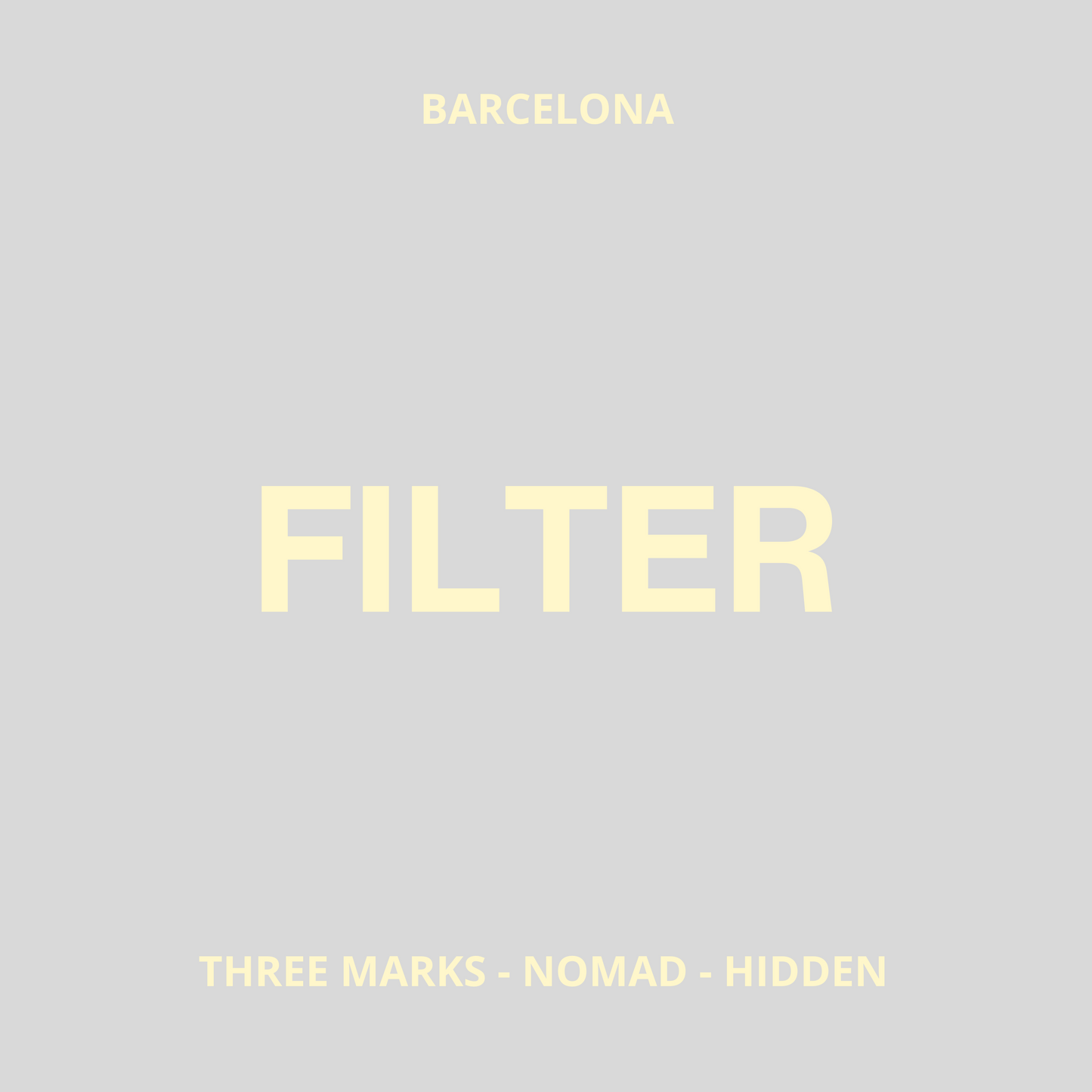FILTER - BARCELONA (3x250gr)
FILTER - BARCELONA (3x250gr)
Impossible de charger la disponibilité du service de retrait
Travel trough Barcelona thanks to Adam.
Discover or rediscover three of the best coffee roasters from Spain:
Nemba - Burundi - Three Marks Coffee
The Project
The Nemba station is located in the Kayanza province of Burundi, where the chief agronomist oversees production
implementing Good Agricultural Practices (GAPs) and working with smallholder farmers to provide the necessary tools and determine best practices for their farms. The washing station processes more than 750 tons of cherries annually, with all more than 3,000 producers owning an average of 150 coffee trees. The station supports projects including a livestock project and Farmer Hub projects. Despite widespread coffee cultivation, the average small farmer produces a relatively small harvest of 200 to 300 kilos of cherries annually.
The Coffee
Beans are processed wet under constant supervision. After floating, the higher quality beans are sorted
again by hand to remove all damaged, under-ripe and over-ripe beans. After sorting, the beans are processed into pulp within 6 hours of delivery. The coffee is fermented dry for up to 12 hours and then soaked in clean water for 12 to 24 hours. Parchment is then soaked for another 12 to 18 hours before being dried on raised beds for 2 to 3 weeks. The coffee is ground and then hand sorted by a team of hand pickers
look closely at each individual bean to ensure there are no defects. It takes a team of two hand pickers a whole day to look at one bag.
Variety: Red bourbon
Process: Washed
Producer: Nemba station
Region: Kayanza province in Burundi
Altitude: 1700 MASL
Notes: Pear, apricot and baked apple
Muhathi - Kenya - Nomad Coffee
The Coffee
With its 8 hectares, Muhathi is categorized as a "small farm" in Kenya. Traditionally, many farmers of this size in the country do not operate their own processing equipment. Historically, they would deliver cherry to a centralized "factory" owned by a cooperative (as stations are called at Washed locally), where their production is combined with that of others in their region. However, Peris operates a small wet mill and processes his own coffee, ensuring full traceability of his cherries.
The cherry is hand-picked and then peeled in Peris' disc pulper. The coffee is dry fermented for 16 to 24 hours and washed with clean water to remove any remaining mucilage. The parchment is soaked for 12 hours and then transferred to raised beds where it is dried in the sun for 14 to 18 days. As it dries, the parchment is turned regularly to ensure uniform drying.
To service individual grower lots that are very small, Kahawa Bora/Sucafina has a separate micro-batch processing line that was custom-built to hull (remove parchment from green coffee beans) batches as small as one bag at a time. This setup is highly unusual in Kenya, and the line allows producers like Peris to maintain their own "brand" when selling their coffee. We believe this is a move in the right direction for Kenyan producers to gain market access to quality-focused buyers abroad.
The Project
Muhathi Farm is located at 1,700 meters above sea level in Kiambu County, Kenya. Located in Ngewa-Komothai in Kiambu, the farm has an ideal microclimate for growing specialty coffee. Warm days and cool nights favor the growth of sweet, dense cherries.
Peris works with the Sucafina/Kahawa Bora team to improve the quality of its coffee and the productivity of its trees. Field staff provide training and support in a wide range of farming and processing techniques.
Kiambu is just outside Kenya's capital, Nairobi, but is nevertheless known for agriculture, especially coffee and tea. The county is also home to the Kenya Coffee Research Foundation.
Kiambu County is also known for its dairy production and is the largest dairy producing county in Kenya. Many of the farmers here follow organic fertilization practices, using only cow dung instead of agrochemicals on their coffee trees.
Farmers in Kiambu face low production due to pests and diseases, while at the same time having to pay high prices for the various resources needed for their coffee plantations. In recent years, many have felt this pressure and have sold their land to developers, as the region borders Nairobi. Support from partners like Kahawa Bora, who help farmers build long-term profitability, can make a difference.
Variety: Batian, Ruiru 11, SL28, SL34
Altitude: 1700 MASL
Process: Washed
Producers Muhathi farmers
Region Kiambu, Kenya
Notes: Honey, Papaya, Nectarine
Nebiri - Ethiopia - Hidden Coffee
The Coffee
Nebiri means leopard in Amharic, one of the big cats that can be found throughout sub-Saharan Africa and in the forests of the Afro-alpine ecosystem of the Ethiopian Highlands.
A coffee with an exotic profile and fruity flavors, which may remind us of mango or stone fruits such as apricot o mango. It has a creamy body and citric and tartaric acidity which balance very well with the sweet flavor similar to caramel or caramel. Brown sugar.
The project
The brothers Asefa y Mulugeta Dukamo They started in the world of coffee helping their parents and neighbors with their crops, determined to show the potential of the coffees in their region. They currently have a family business dedicated to the collection and export of Sidama coffees, managing 3 farms, 42 washing stations and 6 dry mills.
This particular lot belongs to the farm Daye Bensa and the Shantawene wet mill, located in the Sidama region, 10km from the city of Daye in the south-central part of the country.
Variety: 74110 & 74158
Altitude: 2000 MASL
Process: Natural
Producers: Dukamo family
Region: Sidama, Ethiopia
Notes: Apricot, mango and brown sugar
Share










